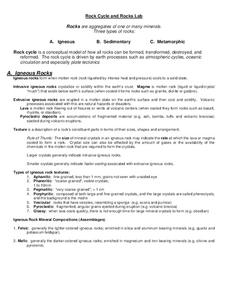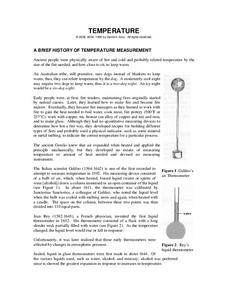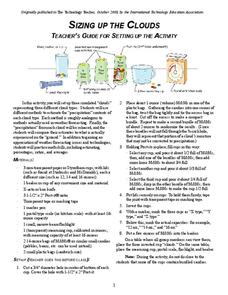Fun Music Company
The Harmonic Minor Scale
The harmonic minor scale, including the use of accidentals, is the focus of a one-page learning exercise that includes instructional information and practice exercises.
Laboratory for Atmospheric and Space Physics
The Planets and Scale
Scholars gain an insight into the relative size of planets and distance between inner and outer planets with the help of informational text, a data table, and a series of four questions.
Laboratory for Atmospheric and Space Physics
Charting the Progress of New Horizons
In 2006, New Horizons began its mission to fly to Pluto. As it continues its journey, scholars track its progress with the help of an informative website, all the while reinforcing measurement concepts with the construction of a scaled...
Music Fun
Overhead Transparencies
Classroom and studio music instructors will find this packet of 10 transparencies of major value. Images of treble and bass clefs, notes and rests, note values, time signatures, and music language are included. Nothing minor about this...
Artisan Global
QuakeFeed Earthquake Map, Alerts and News
Amateur seismologists explore Earth's earthquakes in real time using a variety of map styles and parameter selections.
Charleston School District
Constructing Dilations
Pupils multiply the vertical and horizontal distances from the center of dilation by the scale factor. The independent practice prompts the class to analyze the relationship between the image and pre-image. The lesson is...
Curated OER
Pentatonic Scale
In this music worksheet, students read information about the pentatonic scale and the notes that are included in it. Students discover that the pentatonic scale is typical of Chinese music. There are no questions on the page.
Project Oceanography
Fish Shape
A fish's size, fins, and shape can tell us a lot about them! Learners explore fish anatomy to see how species use camouflage, scales, shape, and coloration to survive. The lesson includes advanced vocabulary such as fusiform shape,...
Charleston School District
Constructing Scatter Plots
Having more letters in your name helps you get a better grade in your math class—or does it? Learners create scatter plots to organize data. The lesson places emphasis on determining scale and intervals and labeling axis.
University of New Orleans
Rock Cycle and Rocks Lab
Science rocks! Explore three types of rocks and the rock cycle with an igneous rocks experiment. Pupils discuss textures, composition, and learn how melts are formed from the Earth's crust. They weigh materials using a scientific scale...
NASA
What Comes Next
Where is NASA going next with their rockets? A reading provides an overview of the next generation of rockets for space exploration. A full-page diagram gives the reader a scaled perspective of what this rocket may look like, for both...
Chymist
Temperature
Three Dog Night isn't just the name of a band; it is also the way an Australian tribe, who used dogs to stay warm, would describe the temperature on a cool evening. After reading about many different ways of measuring temperature, the...
Rainforest Alliance
Knowing the Essential Elements of a Habitat
To gain insight into the many different types of habitats, individuals must first get to know their own. Here, scholars explore their school environment, draw a map, compare and contrast their surroundings to larger ones. They then...
Curated OER
Rocks and Minerals
Take young geologists on an exploration of the collection of rocks and minerals that we call Earth with an upper-elementary science lesson. Through a series of class discussion and hands-on investigations, students learn about the...
Re Energy
Build Your Own Biogas Generator
What is biogas and how is it made? After examining background information about the sources of biogas and biogas generators, class members follow the provided information and build a biogas generator that can be used in the...
It's About Time
The Mu of the Shoe
What is mu? Emerging scientists explore the coefficient of sliding friction, or mu, and apply its concepts as they complete activities in the interesting lesson. They measure the sliding friction between soles of their own athletic shoes...
Charleston School District
Identifying Series and Determining Congruence or Similarity
Learners consider a set of questions to determine a series of transformations that will move one figure to another. Once the series is determined, the pupil then determines whether the pre-image and image are either congruent...
Towson University
The Crucial Concentration
Which sports drink provides the best pick-me-up after the big game or grueling workout? It may not be the one you'd think! Food science is the focus in a surprising lab activity. Pupils use colorimetry to determine the amount of protein,...
International Technology Education Association
Sizing Up the Clouds
How much rain can that cloud make? Through a simulation, the class estimates the amount of candy rain contained in different cup clouds. After probing the clouds using different methods, class members adjust their estimates. Participants...
Fun Music Company
Classification of Intervals
Major 2nd, Perfect 4th, Minor 3rd. The number and classification of intervals are the focus of a one-page worksheet that asks musicians to write the intervals above given notes and to indicate the classification of others.
Student Handouts
What's My GPA?
Here is an excellent, detailed one-page reference sheet to introduce students to what a grade point average (GPA) is and how to calculate their own.
It's About Time
Volcanic Hazards: Airborne Debris
Pupils interpret maps and graph data related to volcanic ash. Then they analyze the importance of wind speed and the dangers of the ash to both life, air temperature, and technology.
Code.org
Practice PT - The Internet and Society
Speaking of the Internet. The culminating lesson for the unit on the Internet challenges pupils to prepare short, two-minute speeches on an issue facing society. The pupils chose from three topics that connect the Internet and...
Charleston School District
Analyzing Scatter Plots
Scatter plots tell a story about the data — you just need to be able to read it! Building from the previous lesson in the series where learners created scatter plots, they now learn how to find associations in those scatter plots....
Other popular searches
- Map Scales
- Balance Scales
- Math Balance Scales
- Pentatonic Scales
- Reading Scales
- Algebra Balance Scales
- Math Map Scales
- Mileage Scales
- Using Map Scales
- Rainbow Fish Scales
- Major Scales
- Chromatic Scales























